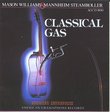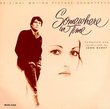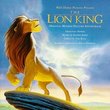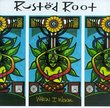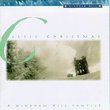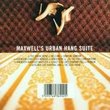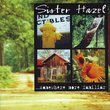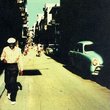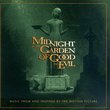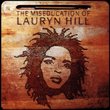| All Artists: Beethoven, Takacs Quartet Title: Beethoven: String Quartets Members Wishing: 1 Total Copies: 0 Label: Philips Release Date: 5/14/2002 Genre: Classical Styles: Chamber Music, Historical Periods, Classical (c.1770-1830) Number of Discs: 2 SwapaCD Credits: 2 UPC: 028947084723 |
Search - Beethoven, Takacs Quartet :: Beethoven: String Quartets
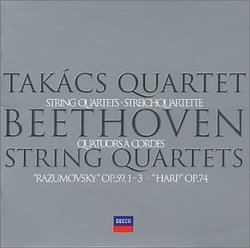 | Beethoven, Takacs Quartet Beethoven: String Quartets Genre: Classical
Having toured the world with its Beethoven Quartets cycle as the old millennium entered the new, the Takács Quartet now commits some of them to disc. This two-CD set from Decca includes the three Razumovsky quartets, ... more » |
Larger Image |
CD DetailsSynopsis
Amazon.com Having toured the world with its Beethoven Quartets cycle as the old millennium entered the new, the Takács Quartet now commits some of them to disc. This two-CD set from Decca includes the three Razumovsky quartets, Op. 59, of 1806, and the Harp Quartet, Op. 74, sometimes known as the Lobkowitz after its dedicatee, composed in 1809. Although the latter's presto yields the fastest version of the fate motif Beethoven ever wrote, it is possible to go too quickly, as the Takács does here, making triplets of the first notes, which are not written as such. The speed of the dazzling finale of the Razumovsky No. 3 is impressive, but just fails to grip as firmly as a slightly slower, more controlled performance might. On the other hand, the Thème Russe last movement of the Razumovsky No. 1 is a model of restraint, the playful parts entering from all angles with delightful measured precision, polished and perfect. The Takács' music breathes as if in a meditative trance the broad, shallow arch of the molto adagio, which lasts a satisfying quarter-hour in Razumovsky No. 2. The four play best what is calculated and intricate, like the theme and variations that conclude the Harp Quartet, giving each episode a distinct flavor. Variety is more important than usual on one-composer recordings such as this, and the members of the Takács Quartet prove themselves contemplative Beethovenians, who occasionally mistake the gallop for a stampede. --Rick Jones Similarly Requested CDs
|
CD ReviewsHere is perfection. donald hart | toronto, ON Canada | 05/21/2004 (5 out of 5 stars) "I have literally searched for years for these recordings. I purchased the Alban Berg's middle quartets, but sold them again. They seemed polished, but soulless. I resold the Quartetto Italiano's. They seemed to aim at the beautiful, rather than the Beautiful. I resold the Tokyo's. They were more urbane and better recorded than the Italians', but identical in their shortcoming. I resold the Vegh's, which, in comparison with the Tokyo's, sounded positively ham-fisted. I resold the Lindsay's, which were as cold as fluorescent lights on an indoor pool. Only my rapture with the late quartets kept me searching at all. Today I am listening to the Takács Quartet for the first time. They are sometimes whimsical and sometimes yearning for more than this world can offer, balanced in their expressions of continuity and change. The voice of each musician is fully individuated, yet they play single-mindedly together. The comparison of classical music with architecture has never seemed so apt, because the sound here is both three-dimensional and spacious. The comparison only falls short because this music is warm and alive. Listen to the first 60 seconds or any 60 seconds of disc one and make up your own mind. Any moment of this music will express its wholeness. My search is over. I will delight in these recordings by the Takács Quartet forever." Like hearing it for the first time... David R. Barker | 03/30/2004 (5 out of 5 stars) "Just seconds into the Rasumovsky 1, you know you're in for something special here. Not only are these the finest sounding that I have heard, but the Takacs technical skill is matched by the emotion they display in playing these middle quartets. A note on the recording-I'm finding that there is a big difference in some of the CD's produced now-vs-even just 2-3 years ago. The four instruments are perfectly balanced and the recording is faultless. I immediatley bought the Takacs early quartets and they are just as fine. The Beethoven cycle of quartets is some of the most beautiful music written in my opinion and the Takacs are now my first choice. I can't wait for their release of the late cycle.." Wonderful Recording David R. Barker | Falls Church, VA United States | 02/17/2004 (5 out of 5 stars) "I heard parts of this 2-CD set while shopping at Tower Records. The Op 74 "Harp" quartet was so distinctly and beautifully played I had to inquire as to the artists. I have good recordings by the Lindsay's and Quartetto Italiano, Guarneri and others, but this recording instantly became my favorite. Includes the Op 59 Nos 1-3. The Andante of the No. 3 is especially beautiful here. Highly recommended. These middle period quartets are also a good place to start a listening adventure into Beethoven's string quartets."
|

 Track Listings (8) - Disc #1
Track Listings (8) - Disc #1